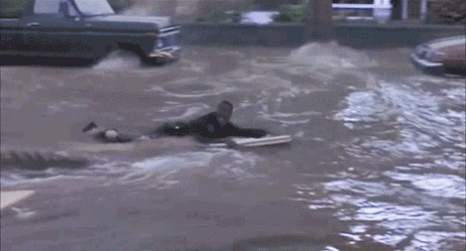Revealed: The travel habits of millennials

BREAKING NEWS: Millennials are everywhere. Okay, maybe it’s not breaking news, but it is important to realise when trying to sell travel to them.
Because not only are millennials one of the largest groups of travellers in the world, they also make up 45 per cent of Asia Pacific’s population.
In other words, it’s a group no one can afford to ignore.
Luckily for you, Amadeus has got you covered with their new research.
Journey of Me Insights: What Asia Pacific Millennial Travellers Want is the latest in a series of Journey of Me reports that Amadeus first launched in August 2017.
Conducted in collaboration with YouGov across 14 markets in Asia Pacific, the research surveyed 6870 respondents.
Unsurprisingly, millennials are embracing new technology, experiences, and ways of traveling. 42 per cent of millennials say they often use ride-sharing apps when they travel, and 35 per cent frequently use sharing economy services for trip accommodation.
Roughy 45 per cent of Australian millennials use sharing economy apps while travelling – like Uberpool or Airbnb.

Millennials are also lusting after new experiences – 29 per cent of Aussie millennials are most interested in recommendations that expose them to something new, and prefer to be contracted via email or social media rather than in person.
Karun Budhraja, vice president, corporate marketing & communications, Asia Pacific, Amadeus said that the industry needs to serve millennials differently to other customers.
“The millennial generation is indeed an extremely interesting generation.
“They grew up with the Internet and technology is second skin to them. They have an openness to new experiences and a willingness to rattle the status quo,” she said.
“They want different experiences in travel, so the industry must serve them differently. Travel providers will need to adopt new technology, new strategies, and above all, new mindsets if they want to secure millennial mind and market share.
“By understanding what drives Asia Pacific millennials and what they value when they travel, businesses will be better placed to meet their needs.”
Millennials are also less likely to take travel advice from celebrities or social media influencers, with the majority preferring recommendations from family or friends, plus traveller reviews.
“While millennials may still look to influencers to curate trends, ideas and inspiration, I believe they are also becoming more sophisticated in how they evaluate them.
“With so many influencers becoming brands unto themselves, some of the authenticity that made them so appealing in the first place starts to get lost.
“‘Real’ is more important than ‘perfect’, and that is an important lesson for the industry to understand,” Budhraja added.
Compared to older generations, millennials are less likely to avoid visiting a destination that has had a recent terror attack, political or social uprising, or the likelihood of a natural disaster like an earthquake. While 59 per cent of baby boomers would avoid a destination where natural disasters are likely, only 51 per cent of millennials say the same.

“While this research has highlighted a number of unique behaviours and preferences of APAC millennial travellers, it is also worth pointing out that there are just as many similarities between millennials and travellers from other generations.
“Personalisation is increasingly important, being real is key, and travellers want to be connected with the right content, through the right channel, and at the right time.
“What is certain is that the travel industry can only thrive if we put the traveller at the center of everything we do,” Budhraja said.
Email the Travel Weekly team at traveldesk@travelweekly.com.au
amadeus Journey of Me Insights millennials reportLatest News

Low-cost Indian carrier SpiceJet continues to burn cash
It’s not just low-cost Australian carriers that are facing hardship. SpiceJet, India’s version of Bonza, recently announced a 72 per cent reduction in its net loss versus last year. But, despite this improvement, the airline has posted losses for six straight years. But it has secured board approval to raise up to INR 30 billion […]

SAKA Museum recognised in TIME magazine’s World’s Greatest Places 2024
AYANA Resort Bali’s newly-opened cultural and events centre, SAKA Museum has been recognised in TIME magazine’s World’s Greatest Places list for 2024. Part of AYANA Bali’s resort destination, the museum integrates Bali’s rich history with state-of-the-art facilities, making it the centrepiece for the island’s spiritual and cultural heritage. TIME magazine’s inclusion of SAKA Museum in […]

Journey Beyond launches first brand-led campaign during Paris Olympics
Journey Beyond is pushing the boundaries. On The Ghan, you can't even see them!

Ascott Australia partners with Hotels for Trees
Hoteliers can take a 'Lyf' out of this book and improve their green credentials.

Victoria’s TAC Top Tourism Town Award winners for 2024
Keep looking in our own backyard. There are plenty of places to go.

Uniworld partners with Camilla Franks with Egyptian-inspired collection
We are in de-Nile about making puns combining Crocs and leopard prints, given this luxe partnership.

Aussies at Paris Olympics anxious about travel risks, with incidents already recorded
Fortunately one of our biggest gold medal hopes still held onto his pedals.

Banyan Tree Seaview Villas elevates Laguna Lang Co
If you've ever played golf in the tropics, start early. LIke way early. It's hot! Damn hot.

Silversea taps Barbara Biffi as senior vice president for global sales
Ultra-luxury and expedition cruise travel brand, Silverseas, has announced Barbara Biffi as its new senior vice president of global sales. Biffi joined the company in 2007, holding numerous positions and gaining a deep understanding of the brand, the preferences of its guests and its strategic goals, the company said. An Italian national with a wealth […]

Wendy Wu unveils new Japan travel brochure and itineraries
Get outta town! Off-beat Japan will be a lot less congested we figure than the usual tourist hotspots.

UK and Europe event organisers look to venues with sustainability integrity, ICC Sydney survey finds
Here in Sydney, you can even eat the table centrepieces. Although we advise they be cooked first.

Renos Rologas new general manager ANZ for FCM Travel
Two decades in the travel game! Let's hope Renos is in for the long haul at FCM.

Untamed Escapes to offer Cultural Day Tour from Port Lincoln in partnership with Maba Idi
International visitors travel thousands of kilometres for this experience. Time to share.

Luxe Finish Line Penthouses offer the best vantage point for the finish of the Sydney-Hobart
Long have we been following the yachts leavings Sydney Harbour and one day, we will see the finish, from this place!

In a busy world, proximity to nature is the new luxury
Forget Raffles, treat your nearest and dearest to a stay at the local campsite. They'll be super close to nature.

Circular Quay welcomes new Korean dining experience to Sydney Place
We once took Korean-American chef David Chang around Koreatown, Eastwood. Not happy about driving rain, loved the food.

MSC Cruises unveils a new outdoor kid-friendly attraction on World America
Drop your kid down the jaws of a shark and they come out 11 decks below. Sounds good to me.

Amadeus welcomes FCM Travel as new reseller partner of Cytric Easy
Cytric Easy, the travel management tool embedded in Microsoft Teams, is to be integrated into FCM Travel portfolio. Amadeus and FCM Travel have extended their Cytric distribution agreement to include Cytric Easy. With this new agreement, global travel management company FCM Travel, becomes a reseller of the innovative travel management collaboration solution embedded into Microsoft […]

Australian travellers abandon peer-to-peer stays and gravitate back to big hotels, survey finds
Doom scrolling Airbnb for the best-possible stay options two days out from departure was wearing us down, apparently.

Quark Expeditions launches the Ultimate Summer in the Arctic sweepstakes for travel advisors
Summer in the Arctic still means it's freezing. But hopefully a winning sweepstakes tickets will warm your cockles.

‘I bet it smells weird’ – Internet divided over floating restaurant in China
I you are still feeling peckish at the end of your meal, their fish tank is full. But can you eat koi?

‘Turn up in the Northern Territory this Spring’ campaign deals
Agents and airlines get all hot and sweaty over these enticing deals. Or did someone just turn the air-conditioning up?

‘Like nothing on earth’: Saudi Arabia’s new Treyam resort set in a Star Wars-style landscape
As long as Jar Jar Binks is not there, we would like a seat at the Mos Eisley Cantina please.

Raffles Hotels and Resorts is set to open in Tokyo in 2028
Time to get your vision boards at the ready! Raffles is landing in Tokyo!

‘A true honour’ – Andrew Stark wins Flight Centre Director’s Award for the second time
Congratulations Andrew! If you're a fan of British reality TV you might notice a familiar face.

Club Med debuts travel agent portal 2.0 with bonus prize for tops sales
See those people by the pool. That could be you. Start selling through the portal people!

Envoyage announces 2024 Australian Icons and rewards event in the Maldives
We were going to edit our name into the list but we chickened out.

HIF Global signs collaboration agreement with Airbus on eFuels
We know it's a good thing but can a jet fuel geek out there send in a diagram explaining this please.

Crystal announces release dates for 2026 itineraries
If you have started collecting 2026 itineraries then here is another one for you.

Cairns Airport unveils display of support for FNQ youth
If you were craving some winter sun now you have a cultural reason for booking a flight to Cairns.

Viking announces six new cruise itineraries
Now's the time to start learning Putonghua, Nihongo and Lhasa. Or maybe even know where these are spoken.

Join Qatar Airways, Celebrity Cruises & Klook – Showcase Your Brand at Click Frenzy Travel August 2024!
Clicking calmly will also be welcome when it comes to this particular deal. Click calmly here to find out more.

InsideAsia Tours launches new incentive that doubles agent commission
Double commission! We like the sound of that. Hope their system doesn't crash as a result.

Push to revive Parramatta’s iconic Roxy Theatre into entertainment destination
Long have we wished for this iconic heritage cinema to be revived as a tourist destination. Still waiting.

Qatar Airways signs an expansion to Boeing 777-9 aircraft order
Known as a quiet rural town in England, the entire global aviation industry now has its eyes on Farnborough.

Flight Centre shares down following revised profit guidance
The stock market moves fast. What will the rest of the week hold for Flight Centre?
